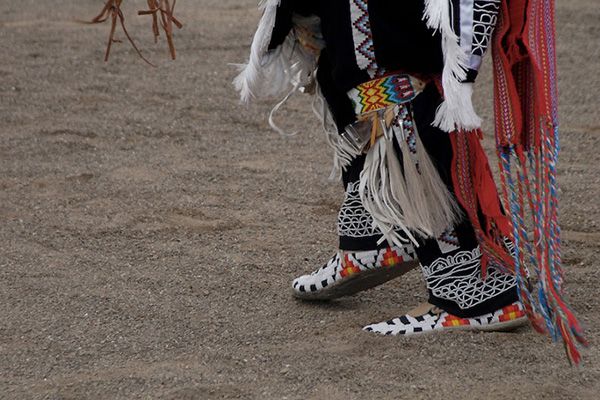As the rest of the United States eagerly awaits to hear the Supreme Court’s ruling on marriage equality, there are parts of the country that can and have been making their own rulings: tribal lands aresovereign territory, technically not considered to be a part of the United States that come under sovereign law. Thus, some Native American tribes have taken the step of allowing marriage equality on their tribal lands.
The Oneida in Wisconsin are the latest tribe to allow its members the freedom to marry. Starting on June 10, the tribe will recognize same-gender marriages, and change their definition of married couples from “husband and wife” to “spouses.” The decision came from an unanimous vote by the Oneida Business Committee.
The argument in favor largely talked about how marriage equality could have a positive economic impact on their tribe, a point they proved with statistics. One example given was “Last February, a group of 100 companies including Google, Facebook, Hewlett Packard, Morgan Stanley and Nike filed a legal brief in response to California’s Proposition 8 saying that banning same-sex marriage [would] ‘inflict real and wholly unnecessary injury on business.’”
They’re not the only First Nation to allow for marriage equality.Twenty-three others recognize marriage equality, including the Blackfoot and Cheyenne tribes. Many of those that have adopted such laws are smaller tribes, like the Suquamish in Washington State.
One member, Heather Purser, petitioned her tribal council so she could marry her non-native girlfriend. She said, “It was completely in flow with the values I’ve always observed with the Suquamish people.” That tribe also agreed unanimously.
Another seventy-seven tribes might recognize marriage equality in the near future, including the Chippewa, Comanche, and the Sioux.
The tribes that have a prohibition against marriage equality tend to be the larger tribes, like the Cherokee, Seminole, and Navajo tribes. It’s possible that the reason for the prohibition largely has to do with the bureaucracies of said tribes.
While we wait to hear what the Supreme Court has to say about marriage equality for the rest of the nation, it seems that many of America’s First Nations are willing to allow love to flourish on reservation grounds.
- Emily Rush, originally published in 429 Magazine. For more original LGBT content, go to dot429.com.
Related Articles
